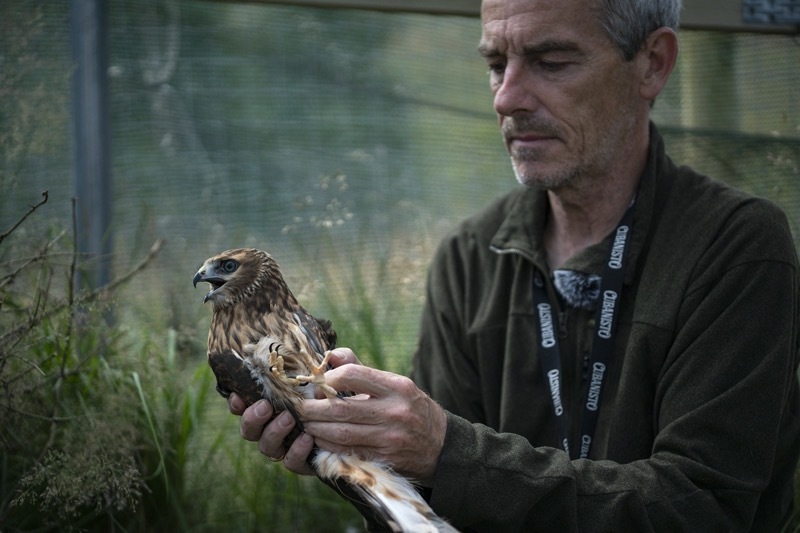A PIONEERING trial to boost the numbers of a rare bird of prey has taken off in one of Barnsley’s most rural outposts after a two-year conservation scheme.
Hen harrier numbers have shown continuous improvement over the past six years at Range Moor at Langsett and Dark Peak near Dunford Bridge, coinciding with the introduction of the government-led recovery plan in 2016.
The trial has seen 34 chicks from nine broods take to the wing in total - and five of the brood-managed birds have gone on to breed in the wild, adding 17 chicks to the wild hen harrier population.
The trial involves eggs and chicks from wild nests being reared for a few weeks at a specialist bird of prey centre before being transported to pens on grouse moors where they are tagged and monitored before being released into the wild, back into the same general areas that they came from.
John Holmes, from Natural England, said: “We are pleased to support the successful rearing and release of 13 hen harriers in 2022, and look forward to following their fortunes through state-of-the-art satellite tracking technology.
“The aims of the brood management trial are to understand if it is possible to rear hen harriers in captivity and then release them to become successful breeding adults in the uplands.
“It is one of a suite of actions set out in the Hen Harrier Joint Action Plan, which also includes direct work to tackle persecution.
“Thanks to the trackers, we know that birds reared in previous years have survived and successfully reared young themselves, contributing to the welcome increase in hen harrier nesting attempts that we are starting to see.
“We will be even more confident of a sustained recovery when the hen harrier population is not limited by illegal persecution and this trial is gathering valuable insights into survival rates and causes of any deaths.”
Where land is managed for the purpose of driven grouse-shooting, natural predators like hen harriers can be viewed as pests and, despite being legally protected, their shooting, trapping and poisoning is a ‘serious’ problem, according to those behind the scheme.
Routine heather burning - which Barnsley East MP Stephanie Peacock has long campaigned about in a bid to ban it - has also hampered wildlife, but the trial’s success has been praised by the Moorland Association.
Director Amanda Anderson said: “Everyone involved in the trial has worked hard over the last five years.
“We have seen some incredibly encouraging results and this will give scientists plenty of evidence as they consider what next steps should be taken.
“All credit to estates and gamekeepers for stepping up and participating in the trial as part of their commitment to help rebuilding the harrier population.”



























